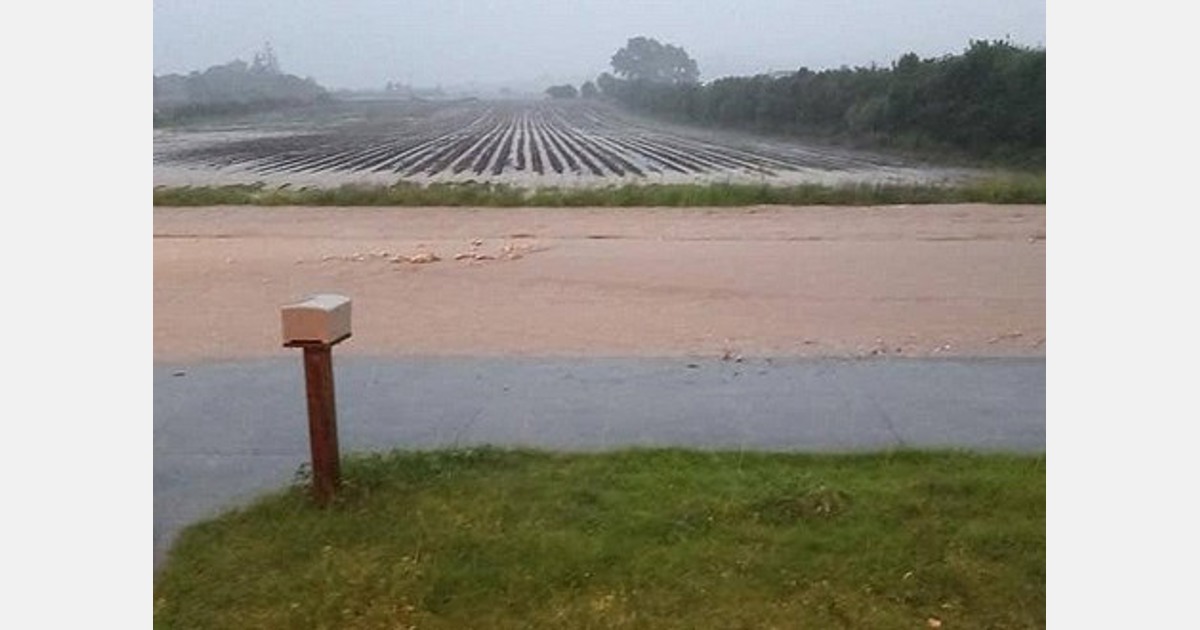Flooding in New Zealand’s North Island will affect onion exports to Europe. According to Hendrik Hachmann, a product specialist for onion imports and managing director of Mitteldeutsches Handelskontor, which was founded in 2021, this will have serious consequences for local markets, especially when the onion season is short this year. Vol.
Batches from South Africa usually mark the start of the import season in late February or early March. At the same time, the stored onion in the country is gradually running out. Hachmann explains: “By the middle/end of April, we will already have to return to foreign products, but the main question is: from which origin? Certainly not from South Africa, especially if a significant part of the supply should be given. to the internal market”.
New Zealand traditionally follows South Africa. “Production from the North Island is delayed by two or three weeks. However, the situation there is very uncertain due to flooding. In short, New Zealand products are not expected to be available worldwide until the end of April. Australia and Tasmania now play an important supporting role and their exports are mainly aimed at the Asian market, “The last source we could go to would be in Chile,” Hachman continues. According to the most recent information, there will be less product in the most popular (90-100mm) sizes in the market.”

Double play
A prolonged drought last summer significantly affected the onion harvest in central and eastern Germany. “We expect to complete regular inventory by the end of February, while the long-term stock retail plans will run till mid/end of March. We have had to face catastrophic crop losses. Normally, it would not be that bad. Had we been able to access regular volumes of foreign inventory, in previous years, “Because of our high degree of self-sufficiency, we were able to do without foreign goods. Now we need those goods more than ever, and we don’t have them: it’s a double play, so to speak,” says Hachman.
Flooding in New Zealand’s North Island has affected onion cultivation. A view of an onion field in Pukekohe (south of Auckland).
Many varieties are generally produced overseas. Most distributions have sizes 50-70 and 40-60. This year, the focus is on the latter, says Hachman. “Presently, the product is mainly packed in 2kg bags, however, once foreign products arrive, we may have to move to 1 or 1.5kg bags to maintain a bearable price for consumers”. Currently, the price of an onion stored in Germany is 0.50 euro ex-warehouse, and there is an upward trend.

The raison d’être of foreign onions
From the 25-year-old Mitteldeutsches Zwiebelkontor, it emerged two years ago. “MZK is mainly involved in the cultivation and distribution of domestic onions, while MHK manages the import and marketing of onions produced outside. Through this we guarantee a certain transparency to the customer. A steady supply twelve months a year is something that food retailers particularly appreciate. The domestic onion industry has its “Despite the record years of increased resources, I believe we will continue to depend on additional imports from overseas. We must also remember that demand for foreign products varies greatly from one chain to another,” concludes Hachman.
Visit the company at Fruit Logistica: Hall 20 / A-21.
Images: Mitteldeutsches Handelskontor GmbH
For more information:
Hendrik Hachmann
Mitteldeutsches Handelskontor GmbH
Brumbyer Weg 34-40
D-39240 Calpe/Sale
T +49 39291 46 53 04
F +49 39291 46 53 09
[email protected]
www.zwiebelkontor.de
Release Date:

“Typical beer advocate. Future teen idol. Unapologetic tv practitioner. Music trailblazer.”

:quality(85)/cloudfront-us-east-1.images.arcpublishing.com/infobae/TW4DCSWSTZBNRAYF2TWELXDHAQ.jpg)

:quality(85)/cloudfront-us-east-1.images.arcpublishing.com/infobae/PNXSZVUBD5H5DP5DG762S2MIO4.jpg)
:quality(85)/cloudfront-us-east-1.images.arcpublishing.com/infobae/VFKSUSKOZNDDPAQESUW6IOXLK4)
:quality(85)/cloudfront-us-east-1.images.arcpublishing.com/infobae/RW2ZOVK5FVDATHAAJEA5NIKJNM.jpg)



More Stories
Where to watch ‘Escaping the Sect’, a mini-series about New Zealand’s most extreme sect, coming to streaming
Bhumitas lost 43 for 20 to New Zealand in Australia
Rugby Championship U20: New Zealand beat Australia to win